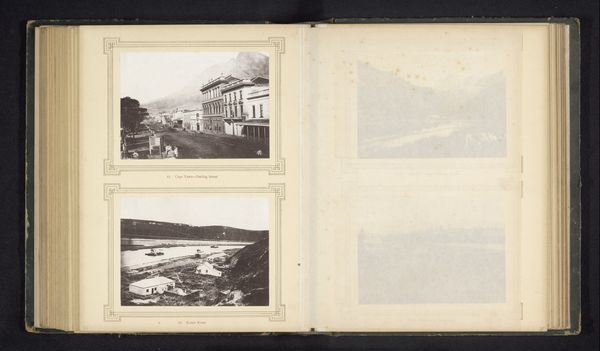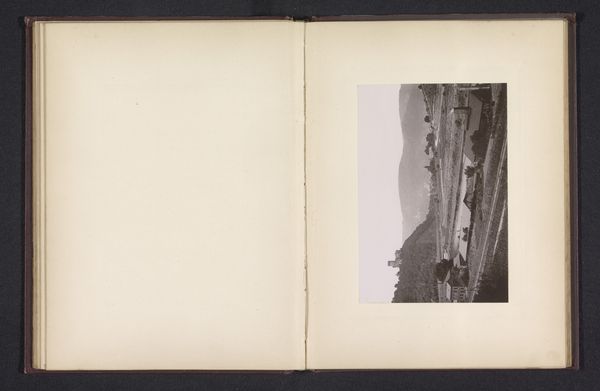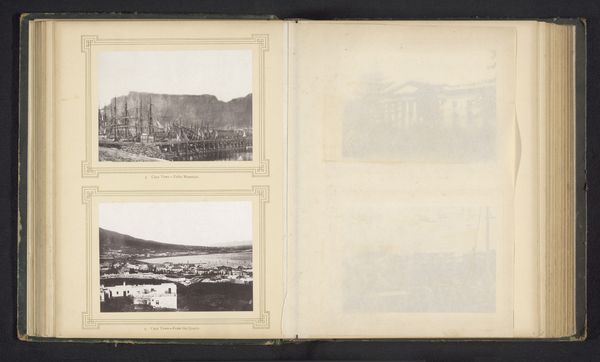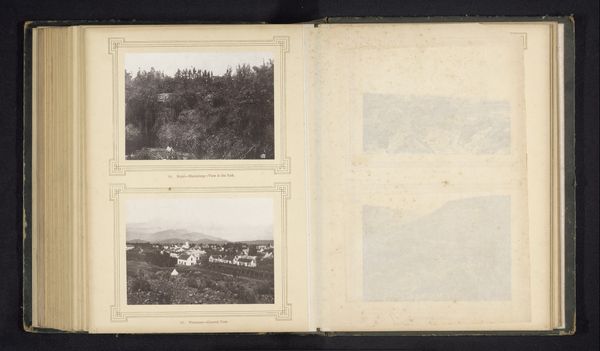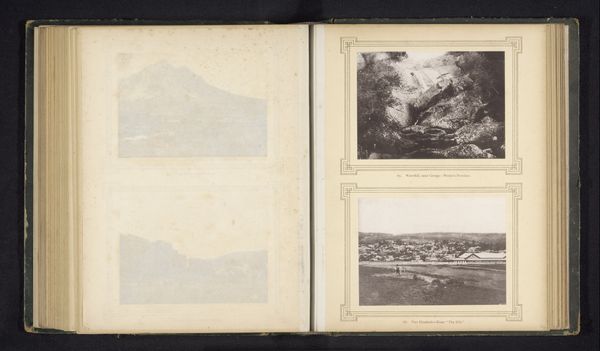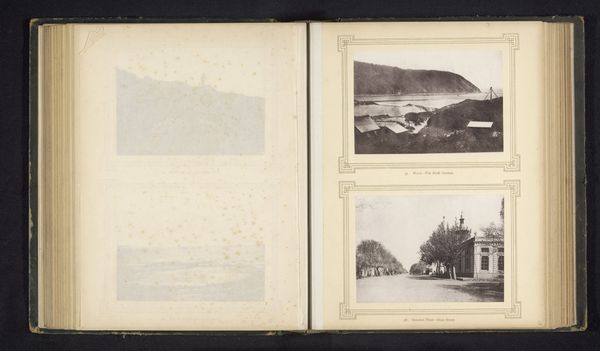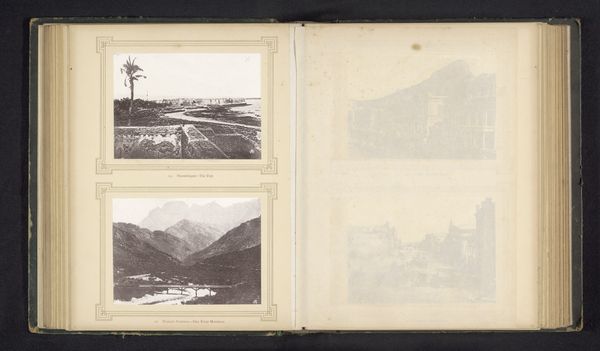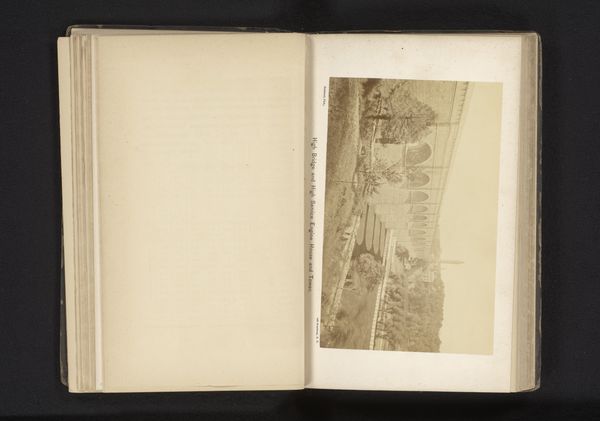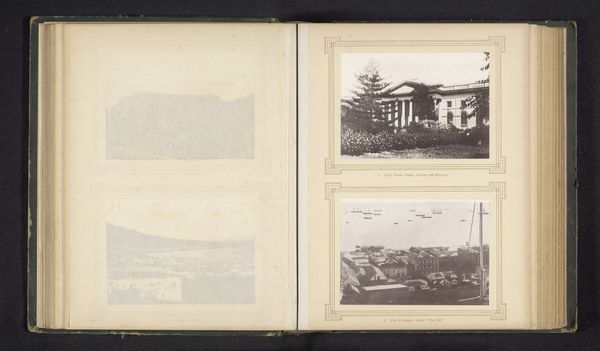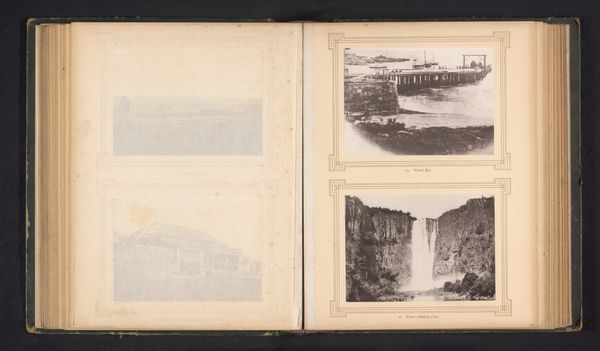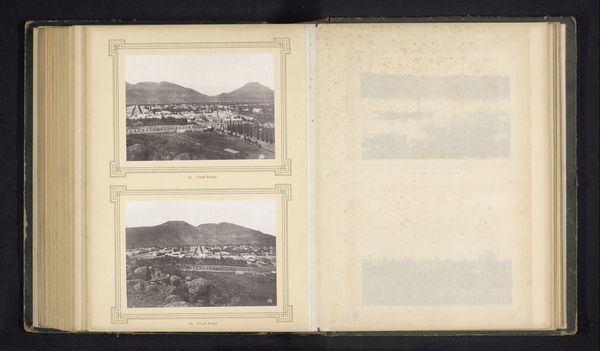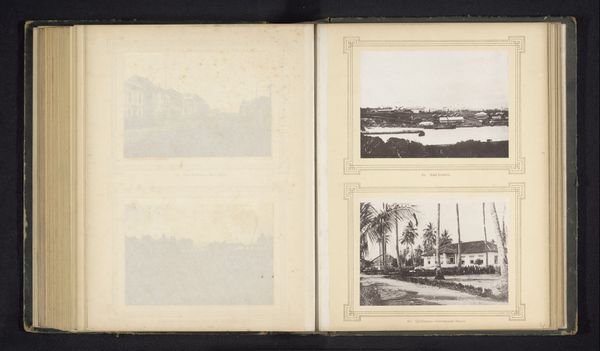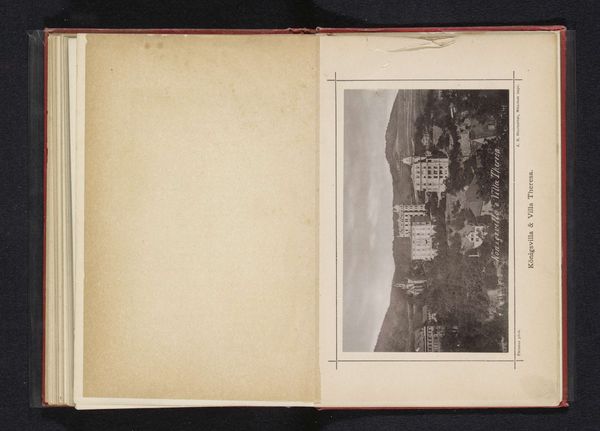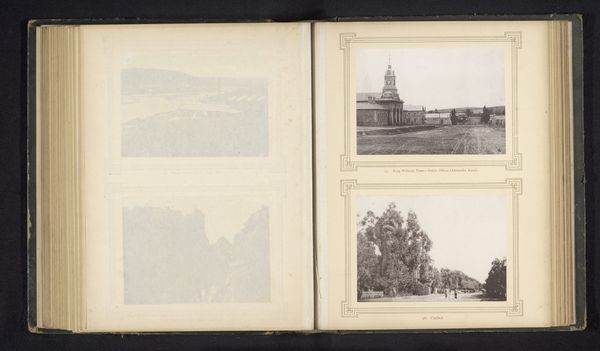![['Natal, Umgeni River-sugar mill', 'Graaff Reinet-"The valley Gate"'] by Sam Alexander](/_next/image?url=https%3A%2F%2Fd2w8kbdekdi1gv.cloudfront.net%2FeyJidWNrZXQiOiAiYXJ0ZXJhLWltYWdlcy1idWNrZXQiLCAia2V5IjogImFydHdvcmtzLzQ0YjgwOWM2LTE4YzMtNDRlZi04MTBjLWE1ZGJkNzA1ZjBhNS80NGI4MDljNi0xOGMzLTQ0ZWYtODEwYy1hNWRiZDcwNWYwYTVfZnVsbC5qcGciLCAiZWRpdHMiOiB7InJlc2l6ZSI6IHsid2lkdGgiOiAxOTIwLCAiaGVpZ2h0IjogMTkyMCwgImZpdCI6ICJpbnNpZGUifX19&w=3840&q=75)
['Natal, Umgeni River-sugar mill', 'Graaff Reinet-"The valley Gate"'] before 1880
0:00
0:00
print, photography, albumen-print
#
ink paper printed
# print
#
landscape
#
photography
#
albumen-print
#
building
Dimensions: height 290 mm, width 219 mm
Copyright: Rijks Museum: Open Domain
Editor: So, here we have a page from an album featuring albumen prints, including two titled "Natal, Umgeni River-sugar mill" and "Graaff Reinet-\"The valley Gate,\"" dating from before 1880. The Natal scene, especially, strikes me with its combination of industrial development amidst this landscape. How do you interpret this work, especially considering its historical context? Curator: It's crucial to recognize that these aren't just scenic views; they are documents deeply implicated in the colonial project. The "sugar mill" isn't simply a neutral element in the landscape. It represents resource extraction, labor exploitation, and the disruption of Indigenous land and ways of life. How does seeing the sugar mill as more than just a building change your perception? Editor: That shifts everything. I initially saw it as this quaint, almost picturesque element. Now, thinking about it as a site of exploitation… the image feels completely different. The landscape itself is being framed as something to be controlled and commodified. Curator: Exactly. And consider the act of photography itself during this period. It was used to both document and promote colonial expansion, shaping perceptions of the landscape and its potential for exploitation. Are these images inviting viewers to marvel at the "untouched" beauty of South Africa, or subtly encouraging investment in its resources? Editor: I see what you mean. There’s a clear agenda at play in framing this “progress.” It feels almost propagandistic now. And, perhaps that serene presentation of “The Valley Gate” could also be a statement of claiming land. Curator: Precisely! These images offer valuable insight into the intertwined histories of colonialism, industrialization, and the power of visual representation. They speak volumes about the construction of identity and the legacy of colonialism in South Africa. Editor: I’ll never look at landscape photography the same way again. Thank you!
Comments
No comments
Be the first to comment and join the conversation on the ultimate creative platform.
